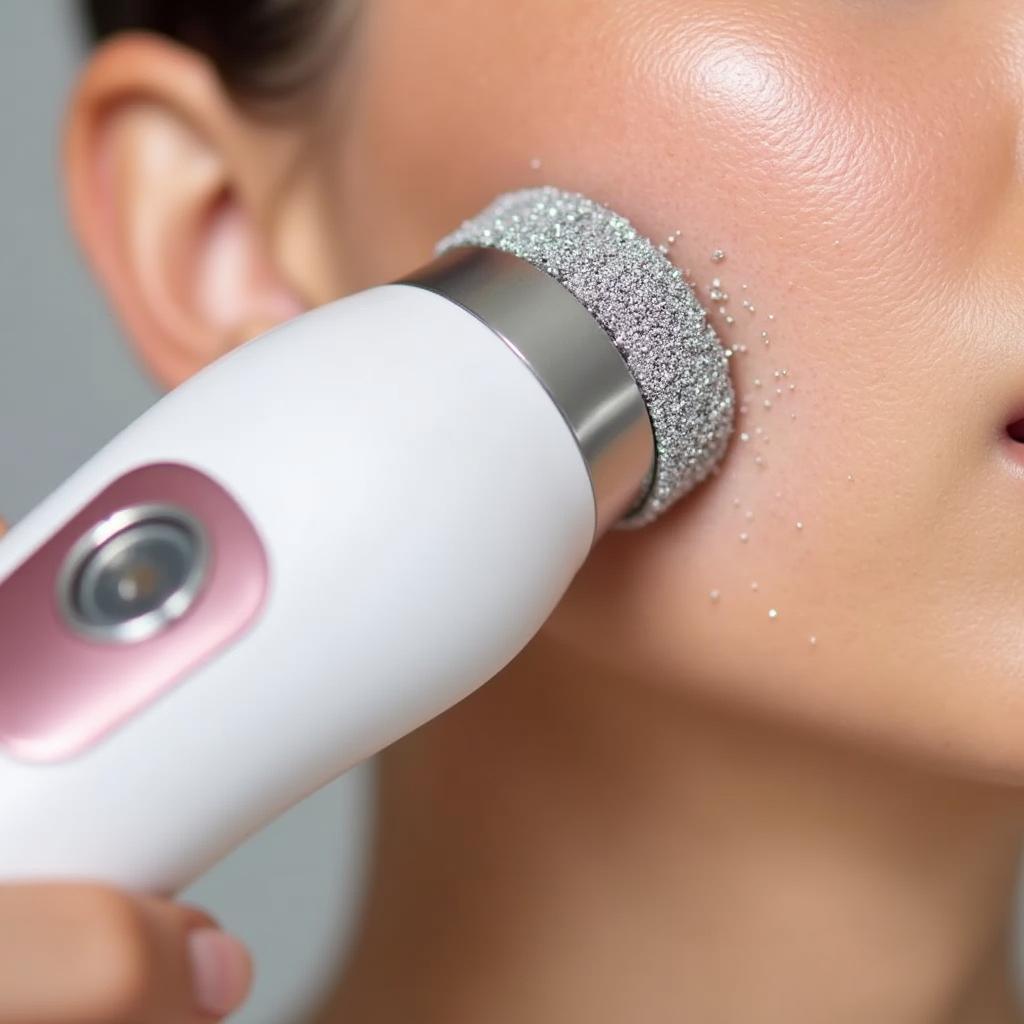Can Retinol Cause Skin Tags?
- AmazoniaSilva
- Tháng 12 11, 2024
- Zodiac signs
- 0 Comments
Can Retinol Cause Skin Tags? This is a common question among skincare enthusiasts. While retinol is known for its remarkable anti-aging and skin-renewing properties, its connection to skin tags isn’t straightforward. Let’s delve into the science behind retinol and explore its potential relationship with these small, benign skin growths.
Understanding Retinol and Its Effects on Skin
Retinol, a derivative of vitamin A, is a powerhouse ingredient in many skincare products. It works by increasing cell turnover, stimulating collagen production, and reducing the appearance of wrinkles, fine lines, and acne. This accelerated cell renewal can lead to smoother, brighter, and more youthful-looking skin.
How Retinol Works at a Cellular Level
Retinol penetrates the skin and binds to specific receptors within skin cells. This interaction triggers a cascade of events, including increased cell division and collagen synthesis. The result is a reduction in the appearance of wrinkles and improved skin texture.
Skin Tags: Causes and Characteristics
Skin tags, also known as acrochordons, are small, soft, skin-colored growths that typically appear on the neck, armpits, eyelids, and groin. They are harmless and generally painless, although they can sometimes become irritated due to friction with clothing or jewelry.
What Causes Skin Tags?
The exact cause of skin tags is unknown, but several factors may contribute to their development, including:
- Friction: Skin rubbing against skin, such as in skin folds, can increase the likelihood of skin tags.
- Hormonal changes: Pregnancy and hormonal imbalances can contribute to skin tag formation.
- Genetics: A family history of skin tags may increase your risk.
- Insulin resistance: Studies suggest a link between skin tags and insulin resistance.
The Relationship Between Retinol and Skin Tags: Fact vs. Fiction
So, can retinol cause skin tags? The answer is generally no. There is no scientific evidence to suggest that retinol directly causes skin tags. In fact, some anecdotal evidence suggests that retinol may even help reduce the appearance of existing skin tags due to its exfoliating properties.
Debunking the Myth
The confusion might arise from the fact that retinol can sometimes cause skin purging, a temporary increase in breakouts and skin irritation as the skin adjusts to the increased cell turnover. This can be mistaken for the development of new skin tags.
“It’s important to differentiate between skin purging and the formation of skin tags. While retinol can cause temporary skin irritation, it does not cause skin tags,” says Dr. Emily Carter, a board-certified dermatologist.
Can Retinol Remove Skin Tags?
While retinol might not cause skin tags, it’s not a recommended treatment for their removal. Other methods, such as cryotherapy, surgical excision, or tying off the base of the skin tag, are more effective and should be performed by a dermatologist.
“Using retinol to remove skin tags is not advisable. Consult a dermatologist for safe and effective removal methods,” advises Dr. Michael Davis, a cosmetic surgeon.
Retinol and Skin Health: Key Considerations
When using retinol, it’s essential to start with a low concentration and gradually increase the strength as your skin adapts. Always use sunscreen during the day, as retinol can increase skin sensitivity to the sun.
Conclusion
Can retinol cause skin tags? The evidence suggests it doesn’t. Retinol remains a valuable skincare ingredient for improving skin texture and reducing signs of aging. However, if you have concerns about skin tags, consult a dermatologist for proper diagnosis and treatment.
FAQ
- What are skin tags? Skin tags are small, benign skin growths.
- Does retinol cause skin tags? No, there’s no evidence linking retinol to skin tag formation.
- Can retinol remove skin tags? No, consult a dermatologist for proper removal methods.
- What causes skin tags? Friction, hormonal changes, genetics, and insulin resistance are potential factors.
- Are skin tags harmful? Generally, no, they are harmless.
- How can I prevent skin tags? Maintaining a healthy weight and managing insulin resistance might help.
- Should I see a doctor about my skin tags? If you are concerned about skin tags, it’s always best to consult a dermatologist.
Need support? Contact us at [email protected] or visit our office at Fifth Avenue, 34th Floor, New York, NY 10118, USA. We have a 24/7 customer support team.

